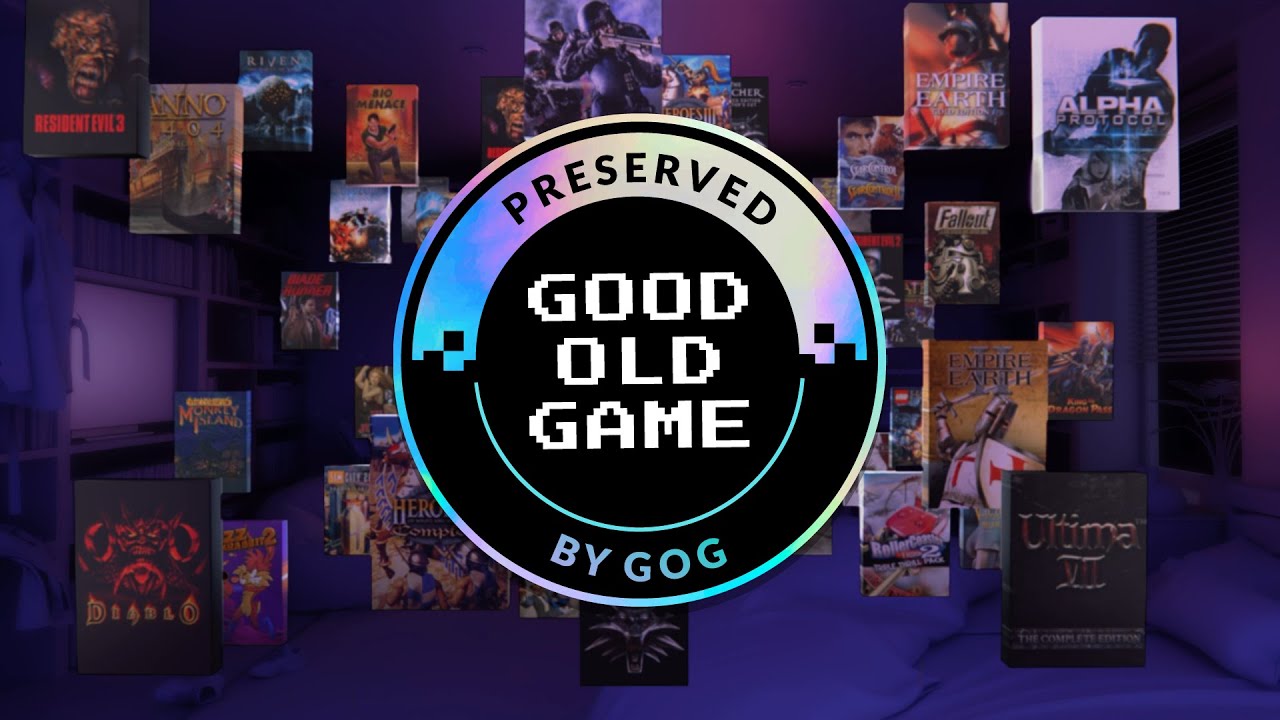GOG.com has once again cracked open the vault, bringing back a lineup of games that shaped entire genres. These aren’t just titles—they’re cultural artifacts, each with a story that explains why they still matter today. Let’s dive into the backstory of each one:
Gothic (2001)
- Backstory: Developed by Piranha Bytes, Gothic dropped players into a penal colony sealed by a magical barrier. You play the Nameless Hero, navigating rival camps, political intrigue, and the looming threat of the mysterious Sleeper.
- Legacy: Known for its living world—NPCs had daily routines, factions mattered, and choices carried weight. It became a cornerstone of European RPG design, inspiring a fiercely loyal modding community.
Gothic II (2002)
- Backstory: Picking up after the fall of the Barrier, the Nameless Hero is rescued by the necromancer Xardas and thrust into a new conflict: dragons, orcs, and the struggle for the island of Khorinis.
- Legacy: Expanded scope, tighter combat, and the Night of the Raven expansion cemented it as one of the most beloved RPGs of its era. In Germany and Eastern Europe, it was a phenomenon.
Necronomicon: The Dawning of Darkness (2000)
- Backstory: A point-and-click horror adventure steeped in Lovecraftian mythos. Set in 1927 Providence, you play William Stanton, whose friend Edgar drags him into a spiral of occult conspiracies and cosmic dread.
- Legacy: While clunky by modern standards, it’s a fascinating artifact of the early 2000s “Myst-like” adventure boom, and one of the few games to directly embrace Lovecraft’s Necronomicon.
Mortal Kombat Trilogy (1996)
- Backstory: Midway’s ultimate compilation of the first three Mortal Kombat games. It featured the full roster—including bosses like Shao Kahn and Goro—plus new mechanics like the Aggressor bar and Brutalities.
- Legacy: For many, this was the definitive 2D MK experience, a chaotic celebration of the franchise’s arcade dominance before the series shifted into 3D.
Freespace 2 (1999)
- Backstory: Volition’s space combat sim set 32 years after Descent: Freespace – The Great War. Humanity and the Vasudans form an alliance, only to face civil war and the terrifying return of the Shivans.
- Legacy: Critically acclaimed for its massive fleet battles, branching missions, and cinematic storytelling. Though a commercial flop, its open-sourced engine gave rise to decades of mods and fan projects (The Babylon Project, Diaspora).
XIII Century: Gold Edition (2009)
- Backstory: A real-time tactics series by Unicorn Games, bundled here as Death or Glory and Blood of Europe. Players command medieval armies—English, French, Mongols, Germans, Kievan Rus—in historically grounded battles.
- Legacy: Often compared to Total War, it stood out for its attention to battlefield detail, authentic heraldry, and weather effects. A hidden gem for strategy purists.
Stranglehold (2007)
- Backstory: A direct sequel to John Woo’s iconic film Hard Boiled, developed with Woo himself. Chow Yun-Fat reprised his role as Inspector Tequila in a balletic third-person shooter powered by Unreal Engine 3.
- Legacy: Famous for “Tequila Time” slow-motion shootouts and destructible environments, it was one of the first true “cinematic shooters.” A cult favorite that blurred the line between film and game.
This isn’t just a sale—it’s a preservation win. From Gothic’s gritty RPG roots to Stranglehold’s cinematic gunplay, these games represent seven different branches of gaming history. GOG’s curation ensures they’re not lost to time, but ready for new players to discover.
